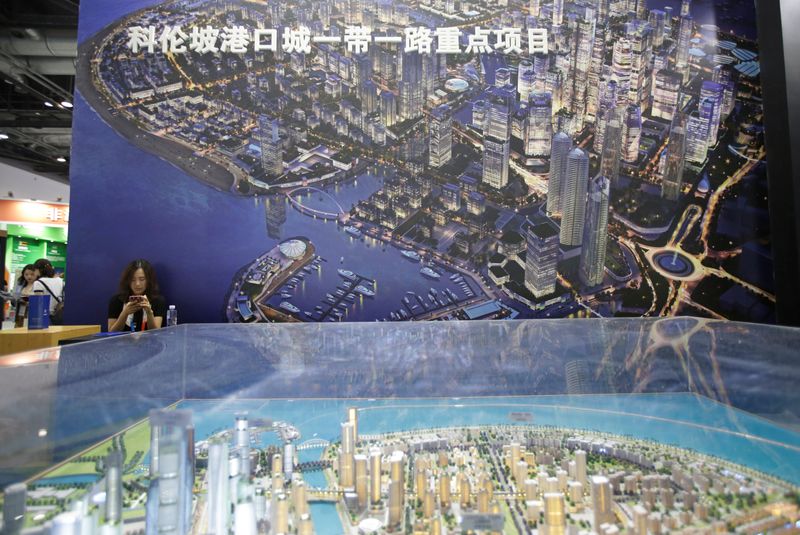By Daniela Guzman and Aaron Weinman
NEW YORK (LPC) - China’s Belt and Road Initiative (BRI) is jumpstarting new infrastructure and energy development projects in Latin America, while opening the door for more Chinese lending in the region.
Initiated in 2013 by the Chinese government, the BRI seeks to build a modern version of the Silk Road to link China with the rest of Asia, Europe and beyond through large-scale projects. It is one of the most ambitious infrastructure initiatives conceived.
Latin America is projected to be the “bright spark” for Chinese investment throughout 2020, according to a report from Fitch Solutions, as more countries sign up to the initiative and Chinese companies obtain new contracts to construct and finance infrastructure projects in the region.
China is Latin America’s second-largest trading partner, after the US. Trade between China and the region grew 19% year-over-year to US$307.4bn in 2019 from 2018, according to Fitch Solutions.
Since 2017, Ecuador, Chile, Uruguay, Trinidad & Tobago, Panama, the Dominican Republic and El Salvador have signed agreements to cooperate with China on the BRI.
As China’s President Xi Jinping seeks to strengthen ties with governments in the region, the country’s biggest state-owned firms are increasingly winning construction, energy and transportation projects.
Earlier this month, utility China Yangtze Power completed a US$4bn bridge loan with the Bank of China, Industrial Commercial Bank of China, Santander (MC:SAN) in Hong Kong and MUFG supporting its proposed acquisition of Sempra Energy’s power assets in Peru.
In November, power company State Grid Corp of China was seeking more than US$2bn in bank debt to finance the purchase of Sempra’s assets in neighboring Chile, sources told Refinitiv LPC at the time.
“The favorite strategy of the Chinese investor is to invest in a Latin American company that has a connection with China, and they (China’s banks) prefer to lend bilaterally,” said a managing director at a US investment bank, adding that the country’s banks generally fund deals directly or on a club basis.
ICBC and the Bank of China, for example, are providing US$600m in debt to help construct an oil refinery at the Mexican port of Dos Bocas, China’s Ambassador to Mexico Zhu Qingqiao told reporters on January 13 at a Mexican economy ministry event. The refinery is estimated to cost up to US$8bn, according to various media reports.
China Civil Engineering Construction Corp on January 7, signed a contract to build the Regiotram de Occidente, an elevated rail line in Colombia’s capital Bogotá, and the firm is after US$300m in debt to finance the operation, banking sources said.
DUE DILIGENCE
As Chinese-backed projects progress in Latin America, the pace of BRI-related works could slow down in 2020, as the Chinese government works to improve transparency and sustainability on financing with BRI-linked countries, according to the January 8 report from Fitch Solutions.
Given that most countries linked to the BRI are characterized as emerging markets that pose higher risks for investors, the scheme has faced some criticism. Many observers are fearful that opaque financing arrangements could lead to unsustainable debt and question whether the initiative is more about promoting Chinese influence than bringing development.
“There has been criticism around the types of projects that were advanced and transparency around projects’ costs, sovereign debt and the sustainability of government finances impacted by loans,” said Matteo Addonizio, an analyst at Fitch Solutions.
In Ecuador, for instance, by the end of 2018, the government had borrowed up to US$19bn in loans from China to fast-track development projects. The loans, which were partially repayable with oil shipments, became expensive as oil prices dropped.
Ecuador has since struggled to tighten its fiscal deficit. In February 2019 it resorted to a US$10.2bn bailout package from international financial institutions including the International Monetary Fund and the World Bank.
Going forward, China’s approach to each country is expected to be more customized, according to Fitch Solutions. And this is likely to reduce reputational risk for China and help gain the trust of other BRI countries.

“This increased focus on transparency will slow the advance of projects overall as the deal-making process will lengthen,” said Addonizio, but added that these processes would be more stringent with heightened due diligence measures.